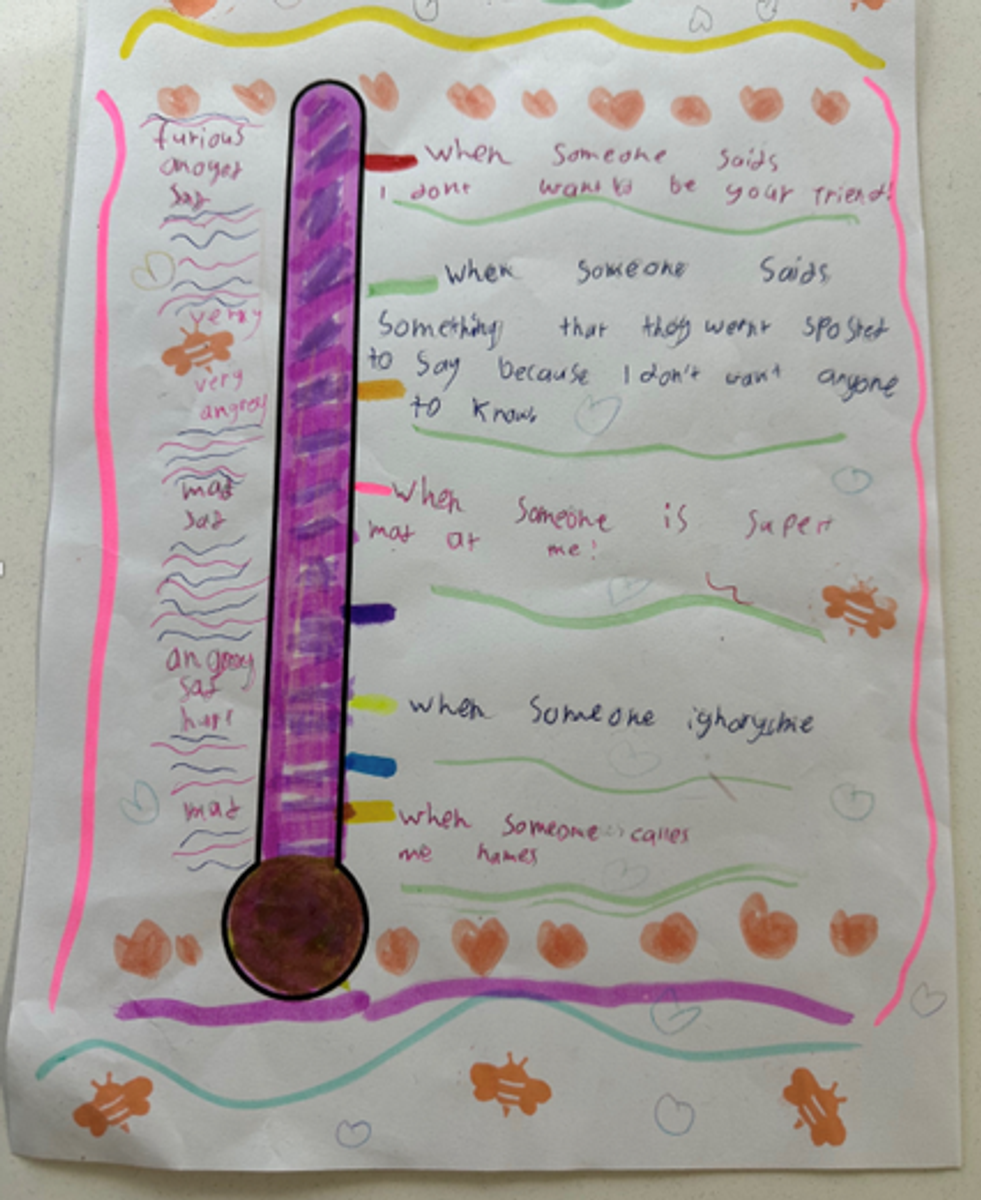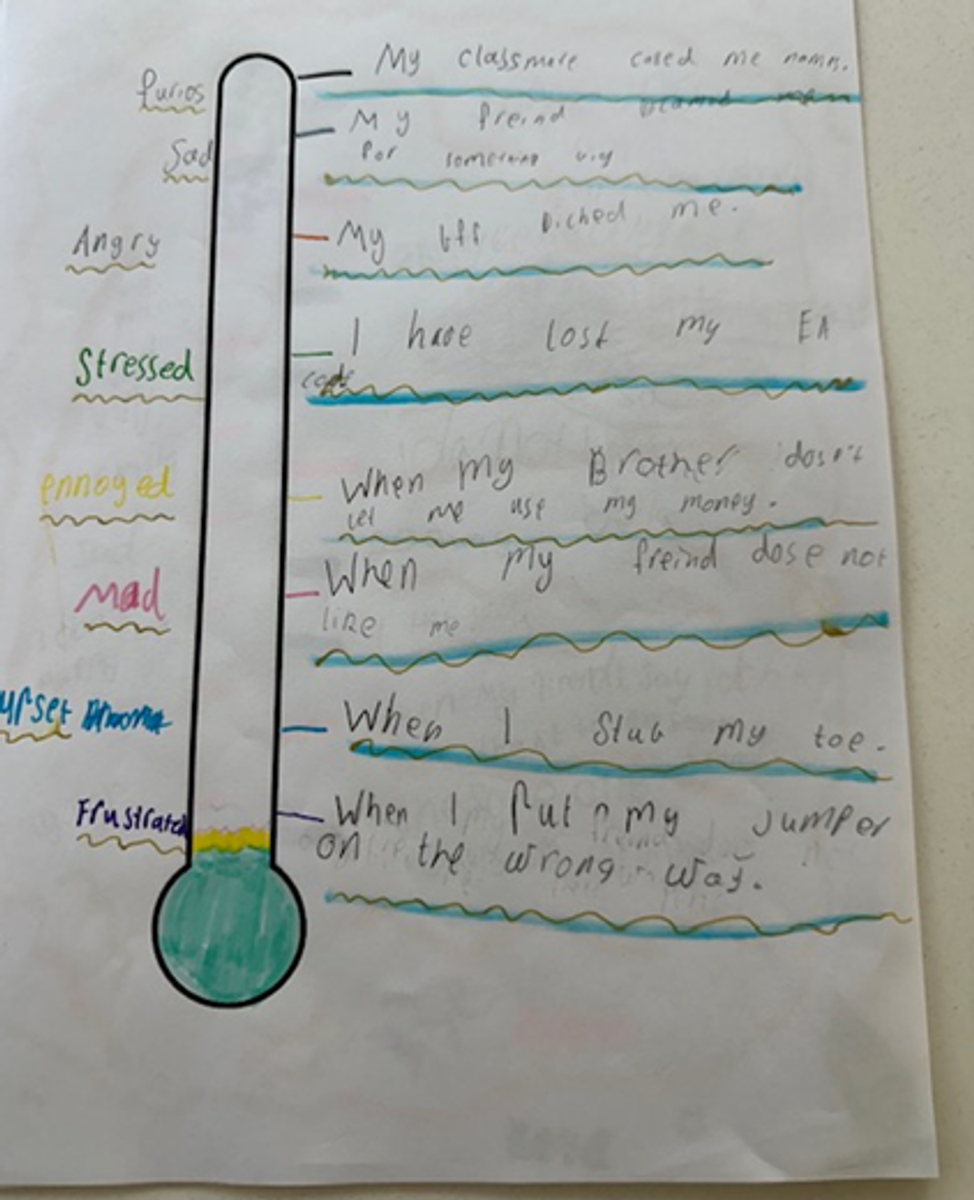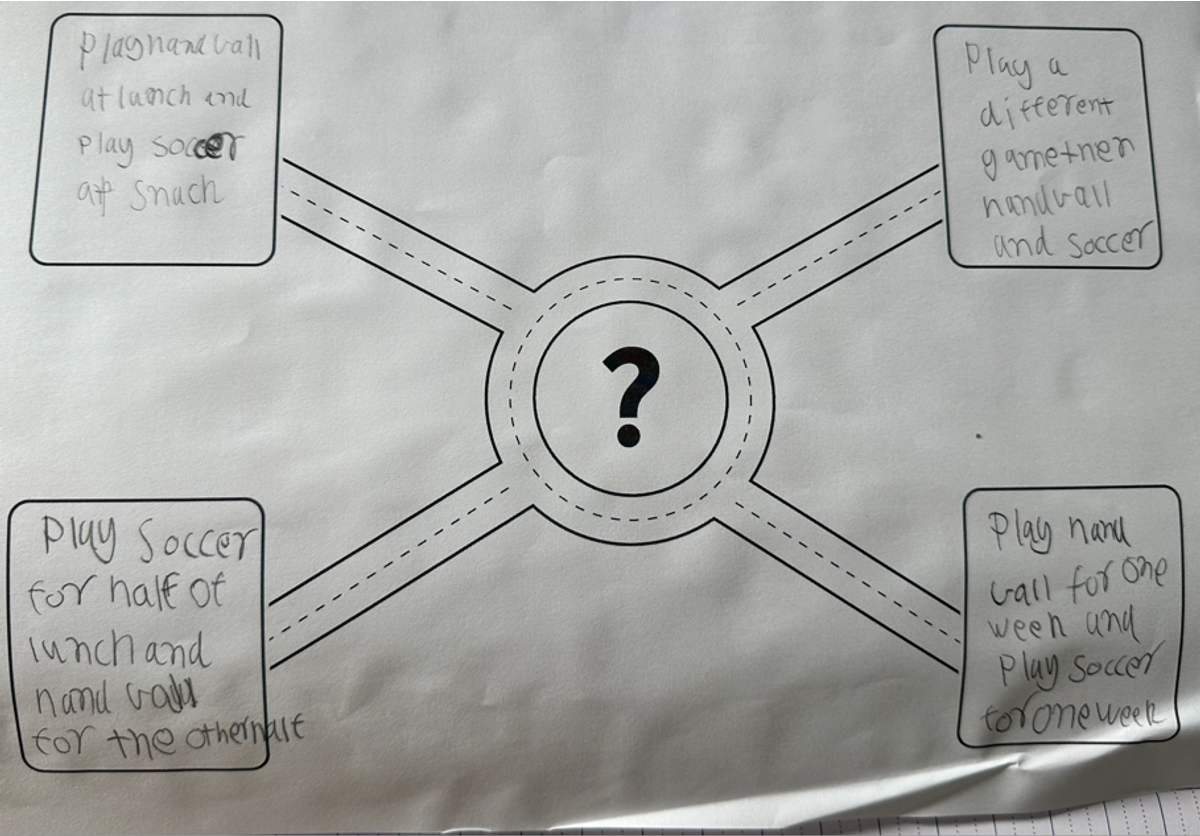Respectful Relationships
with Gretel Van Wyngaarden and The Respectful Relationships Working Party

Respectful Relationships
with Gretel Van Wyngaarden and The Respectful Relationships Working Party
This term during Respectful Relationships, grade 3 and 4 have been working on problem solving and positive coping. During these units, students have worked in small groups or with a partner to understand that everyone has different fears, responses, and coping strategies. They worked through a range of activities including small group discussions, role playing, completing work in Seesaw journals and in their books.
Students described situations that can lead to strong emotions and showed these emotions on a thermometer. They had to think of experiences that might make them feel a little bit angry or annoyed and working up to when they are extremely angry or upset. Sometimes strong emotions is a sign that we may need some help or talk to someone about a problem that we are experiencing.




In groups of 3 or 4, students received a scenario which they had to read through and then think of some possible solutions for the problem.


Scenario: Abdul and one of his friends want to play handball but his other two friends want to play soccer. How could this problem be solved?
This term at Brookside we are focusing on Topics 3 and 4 of Respectful Relationships across P-9.
Topic 3: Positive Coping
Learning activities in this topic provide opportunities for students to identify and discuss different types of coping strategies. When children and young people develop a language around coping, they are more likely to be able to understand and deliberately utilise a range of productive coping strategies and diminish their use of unproductive coping strategies. Students learn to extend their repertoire of coping strategies and benefit from critically reflecting on their own choices and being exposed to alternative options.
Activities introduce students to the concept of self-talk and practice using positive self-talk to approach and manage challenging situation. Positive self-talk is a key strategy for coping with negative thoughts, emotions and events. It is associated with greater persistence in the face of challenge, and can be learnt or strengthened through practice.
Topic 4: Problem Solving
Problem- solving are an important part of the coping repertoire. The classroom program provides a number of learning activities to develop students problem solving skills. The activities in the program assist students to develop their critical creative thinking skills, and to apply them to scenarios exploring personal, social and ethical dilemmas.
Thank you,
The Respectful Relationships Working Party